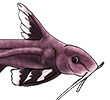Little ones with parents
- catfishgurl1976
- Posts: 31
- Joined: 28 Feb 2003, 03:18
- Location 1: Washington
- Interests: African catfish, Labyrinth fish, and other non-fish stuff also.
Little ones with parents
I had the previous post (shock babies).
Both parents are still in with the fry. One parent is still under the rock, and the other parent is just out.
Two of the fry are moving around now, so should I remove the parent that is not under the rock?
I fear he might accidently or even on purpose eat the little ones.
Both parents are still in with the fry. One parent is still under the rock, and the other parent is just out.
Two of the fry are moving around now, so should I remove the parent that is not under the rock?
I fear he might accidently or even on purpose eat the little ones.
- Silurus
- Posts: 12380
- Joined: 31 Dec 2002, 11:35
- I've donated: $12.00!
- My articles: 55
- My images: 885
- My catfish: 1
- My cats species list: 90 (i:0, k:0)
- Spotted: 420
- Location 1: Singapore
- Location 2: Moderator Emeritus
- Sid Guppy
- Posts: 757
- Joined: 31 Dec 2002, 15:36
- Location 1: Brabant, the Netherlands
- Interests: Catfish, Tanganyikan fish, Rock'n'roll, Fantasy
And there's a fairly big chance that both parents actually take care of the fry; one protects the territory, the other one the fry itself. Many cichlids use this method, and probably big Bagrids too (at least some big cats native to both Malawi and Tanganyika do; it has been showed on film; 2 big black catfishes with hundreds of tiny young -Bagrus meridionales perhaps? or a huge Chrysichthys species?)
Maybe you see each time the other one; or is it the same fish that's in with the fry, and always the other on the rock? It's very likely they exchange roles; maybe one stays with the fry during the day, and the other has the nightshift?
So far; all the captive-bred Claroteids that are documented* are BI-PARENTALS (wich means both parents have breeding care); so if you remove one, you probably disrupt or disturb to the level of them both leaving the young and/or destroying the nest.
Parauchenoglanis/Anaspidoglanis rarely eat fishes, even small ones; and as soon as the fry develop pectoral spines; they're even safe from getting accidentally taken in the mouth by any fish. I've seen Lophiobagrus babies being spat out, and surviving the experience.
*= Lophiobagrus cyclurus; Lophiobagrus sp aff cyclurus; Chrysichthys sp cf furcatus (all of wich are cavebrooders; or better digging cavebrooders) and Phyllonemus typus (wich are cavedigging mouthbrooders)
Maybe you see each time the other one; or is it the same fish that's in with the fry, and always the other on the rock? It's very likely they exchange roles; maybe one stays with the fry during the day, and the other has the nightshift?
So far; all the captive-bred Claroteids that are documented* are BI-PARENTALS (wich means both parents have breeding care); so if you remove one, you probably disrupt or disturb to the level of them both leaving the young and/or destroying the nest.
Parauchenoglanis/Anaspidoglanis rarely eat fishes, even small ones; and as soon as the fry develop pectoral spines; they're even safe from getting accidentally taken in the mouth by any fish. I've seen Lophiobagrus babies being spat out, and surviving the experience.
*= Lophiobagrus cyclurus; Lophiobagrus sp aff cyclurus; Chrysichthys sp cf furcatus (all of wich are cavebrooders; or better digging cavebrooders) and Phyllonemus typus (wich are cavedigging mouthbrooders)
Plan B should not automatically be twice as much explosives as Plan A
- catfishgurl1976
- Posts: 31
- Joined: 28 Feb 2003, 03:18
- Location 1: Washington
- Interests: African catfish, Labyrinth fish, and other non-fish stuff also.
OK...I'm pretty sure you are all going to scream at me now, but here goes:
I had the divider in my tank, to keep my Bettas from messing with the babies.
The babies became free swimming, and were getting through the sides.
I have removed the babies to a fry tank.
I have baby brine shrimp to feed them, I also have Daphnia.
I didn't want the babies to get hurt or eaten.
There are about 50 of them. (best guess)
The parents are together in my 20 gallon tank. They seem to be ok.
Is there anything special I should be doing for them?(the parents)
I really want to save the fry, and keep the parents healthy.
I greatly appreciate everyone's help.
I had the divider in my tank, to keep my Bettas from messing with the babies.
The babies became free swimming, and were getting through the sides.
I have removed the babies to a fry tank.
I have baby brine shrimp to feed them, I also have Daphnia.
I didn't want the babies to get hurt or eaten.
There are about 50 of them. (best guess)
The parents are together in my 20 gallon tank. They seem to be ok.
Is there anything special I should be doing for them?(the parents)
I really want to save the fry, and keep the parents healthy.
I greatly appreciate everyone's help.
- Silurus
- Posts: 12380
- Joined: 31 Dec 2002, 11:35
- I've donated: $12.00!
- My articles: 55
- My images: 885
- My catfish: 1
- My cats species list: 90 (i:0, k:0)
- Spotted: 420
- Location 1: Singapore
- Location 2: Moderator Emeritus
- Sid Guppy
- Posts: 757
- Joined: 31 Dec 2002, 15:36
- Location 1: Brabant, the Netherlands
- Interests: Catfish, Tanganyikan fish, Rock'n'roll, Fantasy
I wouldn't risk that; once removed the parental care is disturbed or stopped. Most likely the parents won't recognize them anymore and eat them.
With most fishes that have breeding care it is like that (not even fishes only; take baby rabbits from the mother too soon; once you try to put them back, she kills them...)
i only hope you used tankwater to fill up the fry tank!
good luck; keep us posted.
With most fishes that have breeding care it is like that (not even fishes only; take baby rabbits from the mother too soon; once you try to put them back, she kills them...)
i only hope you used tankwater to fill up the fry tank!
good luck; keep us posted.
Plan B should not automatically be twice as much explosives as Plan A





